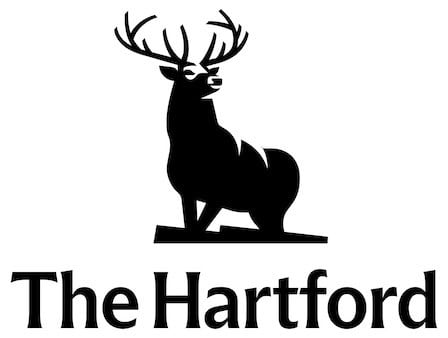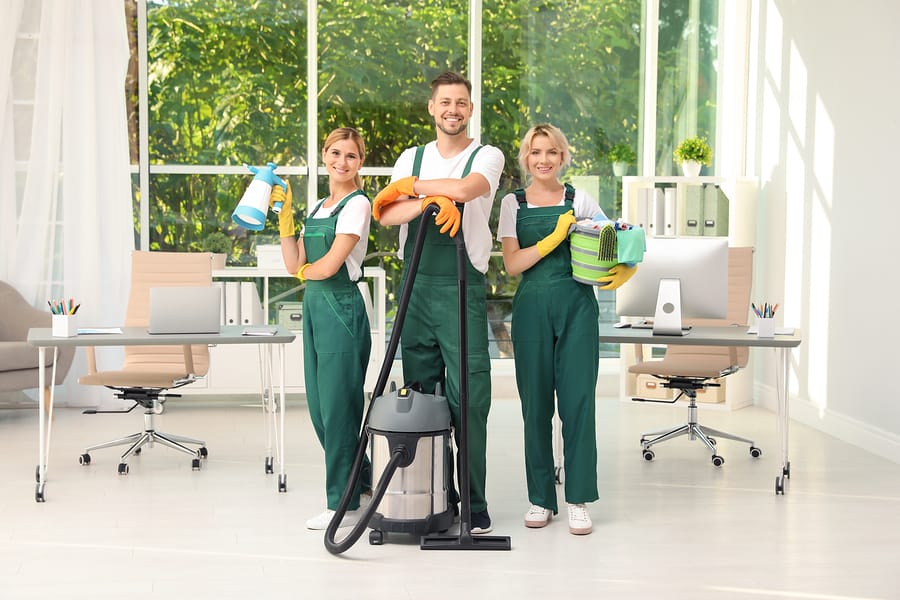
Get Business Insurance Starting At $21/Month
Obtain affordable coverage quickly and easily with The Hartford for business insurance. Just answer a few basic questions about your business to get started, and they'll do the rest.
Get Covered💳 Save money on credit card processing with one of our top 5 picks for 2025
Cleaning insurance protects both your cleaning company and your customers. What kind of cleaning business insurance do you need, and where's the best place to get it? This post will give you the lowdown on insurance for cleaners.

Insurance for a cleaning business is an important part of your business plan. If your cleaning business takes you and your employees in and out of other people’s homes or businesses, cleaning insurance helps you manage and mitigate your risks.
From choosing the right types of business insurance coverage for your cleaning business to finding the best business insurance providers, this post will answer all your questions and tell you everything you need to know about insurance for a cleaning business.
Table of Contents
Cleaning business insurance is not a single policy but a combination of essential coverage that meets your cleaning business’s unique insurance needs.
Because you (and your employees, if you have any) probably move from job site to job site each day, your cleaning business needs to cover a range of possibilities. You might break or damage something inside a customer’s home. A homeowner might slip and fall on the wet floor you just cleaned. You or an employee could be involved in a car accident on the way to a job.
The right combination of cleaning business insurance can protect you if any of those events occurs.
Cleaning insurance starts with general liability insurance. It’s one of the two most important types of business insurance available. The other is commercial property insurance, and these two policies are often bundled together in a combined policy known as a business owner’s policy (BOP).
Depending on how you run your business, you may want additional coverage. Here’s a rundown of what general liability for a cleaning business typically covers. You may need to add an extra endorsement or purchase a separate policy for additional coverage.
Insurance for a cleaning business may be optional, but getting cleaning business insurance is a smart move. In other words, if you’re still wondering if you need business insurance, the answer is yes.
Anyone whose business takes them in and out of people’s homes or offices needs the protections that insurance provides. As a cleaner, you work around valuable property, possibly with expensive equipment and hazardous chemicals. General liability insurance is an affordable policy that protects cleaning businesses from business-ending disasters.
Cleaning insurance isn’t only for housecleaners or janitors. No matter what type of cleaning business you own, you should think about insuring yourself. Here are some of the most common cleaning businesses that should purchase cleaning insurance and endorsements:
While it’s not a type of insurance, you should also consider a janitorial service bond, which is a specialized type of fidelity bond. Some clients require cleaners to have a janitorial bond. It’s a contract between you and the bond provider that guarantees you’ll reimburse your client if you or an employee is accused of property theft.
A janitorial bond can cost as little as $125 for a one-year term with $10,000 coverage if you have up to five employees.
The best cleaning insurance companies offer coverage you can count on at a price you can afford. For most cleaning companies, that starts with cheap general liability insurance coverage. You also want to work with an insurer that offers any additional policies you may require.
Merchant Maverick experts reviewed almost two dozen insurance providers to find the best and most affordable liability insurance. Here are our top picks:
The Hartford offers an average cost for general liability coverage starting at around $88/month. It’s available in 48 states (sorry, Alaska and Hawaii).
CoverWallet is an insurance broker, not a direct provider. That means the company will search for the coverage you need. CoverWallet says it can provide general liability options starting around $39/month.
Next offers fast online quotes for coverage and almost instant coverage, with pricing for general liability starting around $11/month for some types of business. You can download a certificate of insurance as soon as your payment is received.
Nationwide offers general liability insurance policies plus many types of policies that are optional but recommended for a cleaning business. Pricing is available only by personal quote, which usually is available within about a half hour.
Hiscox insurance policies are designed specifically for contractors and freelance workers, with packages for sole proprietors and home-based businesses. Hiscox says its general liability coverage costs around $30/month or less.
Thimble is a good choice for cleaning insurance if your cleaning business doesn’t operate year-round. If you clean summer homes, for example, or provide extra helping hands during the busy holiday season, you don’t need to pay for insurance every month. General liability coverage from Thimble starts at around $17/month.
biBERK is a Berkshire Hathaway company with a solid gold reputation and financial stability. You’ll find the full range of coverage a typical cleaning company might want, too. General liability is by personal quote, with coverage starting around $27.50/month.
Pricing for cleaning insurance can vary significantly, as you can see from the examples above.
According to Forbes, the average cost of general liability insurance is around $30/month or $360/year. Your insurance cost depends upon a variety of factors, including your business structure, annual revenue, number of employees, and location. You could pay less than the average, or you could pay more. The only way to find out is to select an insurer from the options above and ask for a free personalized business insurance quote.
Even for a small cleaning company that’s just getting started, the cost of cleaning insurance can be affordable. Remember that you’re paying for the assurance that you won’t lose your business if disaster strikes. When you put it like that, spending around $1 a day for insurance doesn’t seem too high a price to pay.
Spending money is rarely fun for a business owner, and business insurance is not the most exciting purchase. All the same, it’s one of the most important protections money can buy for your business. And with a little bit of research, most small businesses can find essential insurance coverage at an affordable price.
Start by assessing your risks. What equipment and inventory do you need to protect? Then, collect some basic information about your business so you’re ready to talk to an insurance rep or apply for coverage online. How many employees do you have? What does your business make in a year? How many vehicles are on the road for your business each day?
Armed with this information, you’re ready to comparison shop and gather quotes from a few insurance providers. Discuss bundling policies to get discounted pricing that gives you more coverage. Mix and match policies until you get the coverage you need. A quick refresher course on how to read insurance quotes will help you compare the pricing and coverage information you receive so you make sure you’re choosing the best insurance company.
If you’re just starting your cleaning business, our guide to startup insurance can help you understand more about what business insurance does and why you need it. If you’re running your business from home, our guide to home-based business insurance can help you avoid some expensive mistakes.
Startups can take another step to set themselves up for success by opening a business bank account. No matter how new or small your cleaning business is right now, a business bank account offers another valuable layer of financial protection. You can find a free business bank account or choose one specifically for independent small businesses. Our list of the best bank accounts for freelancers and self-employed workers will show you some great options!
A business bank account, combined with essential business insurance, is the best way to set your business up for success. You can focus on your business plan and day-to-day operations, knowing you’ve secured the financial protections your cleaning business needs for the long term.
Want to help shape the future of the Merchant Maverick website? Join our testing and survey community!
By providing feedback on how we can improve, you can earn gift cards and get early access to new features.
 Experience competitive rates, excellent customer support, and a fast & easy claim process. Request a free analysis today.
Get Started
Experience competitive rates, excellent customer support, and a fast & easy claim process. Request a free analysis today.
Get Started
Help us to improve by providing some feedback on your experience today.
The vendors that appear on this list were chosen by subject matter experts on the basis of product quality, wide usage and availability, and positive reputation.
Merchant Maverick’s ratings are editorial in nature, and are not aggregated from user reviews. Each staff reviewer at Merchant Maverick is a subject matter expert with experience researching, testing, and evaluating small business software and services. The rating of this company or service is based on the author’s expert opinion and analysis of the product, and assessed and seconded by another subject matter expert on staff before publication. Merchant Maverick’s ratings are not influenced by affiliate partnerships.
Our unbiased reviews and content are supported in part by affiliate partnerships, and we adhere to strict guidelines to preserve editorial integrity. The editorial content on this page is not provided by any of the companies mentioned and has not been reviewed, approved or otherwise endorsed by any of these entities. Opinions expressed here are author’s alone.
 Experience competitive rates, excellent customer support, and a fast & easy claim process. Request a free analysis today.
Get Started
Experience competitive rates, excellent customer support, and a fast & easy claim process. Request a free analysis today.
Get Started